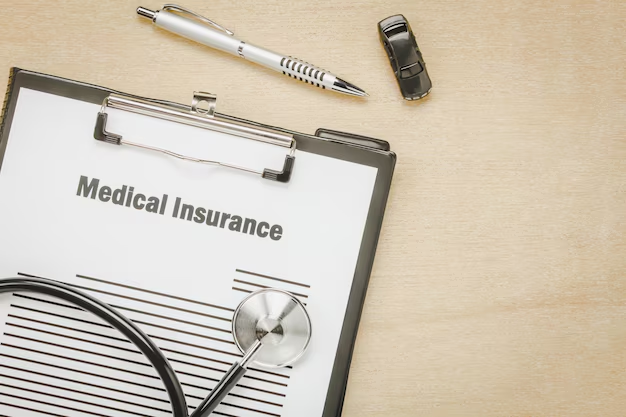Navigating Medical Debt: What Reddit Communities Suggest
In recent years, medical debt has become a pressing issue for many individuals and families. The burden can be overwhelming, affecting financial stability and mental well-being. If you're grappling with this concern, you aren't alone. Online platforms like Reddit have become hubs where people share experiences, seek advice, and offer support on dealing with medical debt. This article aims to provide a comprehensive guide on managing medical debt by distilling the collective wisdom found on Reddit, moving through various strategies, resources, and FAQs.
Understanding Medical Debt
Medical debt arises when individuals cannot pay for healthcare services, leading to bills that accumulate interest and fees over time. Unlike other debts, medical expenses are often unexpected and can be substantial, due to emergencies or chronic conditions requiring ongoing treatment.
Why is Medical Debt a Problem?
Medical debt can impact credit scores, hinder access to further medical care, and even affect job prospects. Emotional stress is another factor, as debt can lead to anxiety and depression. Thus, understanding options and proactive management is crucial.
Community Insights: Reddit's Take on Medical Debt
Reddit hosts a myriad of forums where users exchange tips and strategies on tackling medical debt. The most frequently mentioned subreddits include r/personalfinance, r/povertyfinance, and r/healthcare.
Popular Strategies Discussed
- Negotiating Bills: Many Reddit users suggest contacting healthcare providers to negotiate bills, possibly reducing the total amount owed.
- Payment Plans: Setting up manageable monthly payments can be a viable solution. Several Redditors have successfully negotiated interest-free payment plans.
- Charity Programs: Some health systems offer charitable programs for low-income patients. Researching and applying for these programs is often recommended.
- Medical Bill Advocates: Hiring a medical bill advocate can sometimes identify errors in billing or negotiate on your behalf.
Step-by-Step Guide to Managing Medical Debt
1. Assess Your Debt
Start by gathering all your medical bills and insurance documents to understand the full scope of what you owe. Categorize these by due date, amount, and service provider.
2. Verify Your Bills
Mistakes happen frequently in medical billing. Check each bill for accuracy—confirm services rendered, insurance coverage, and patient responsibility.
3. Prioritize Bills
Not all debts are created equal. Prioritize bills based on urgency:
- Emergency Services: Typically have more leniency in payment deadlines.
- Non-Emergency Services: May not be as flexible, so discuss payment options upfront.
4. Contact Healthcare Providers
Next, reach out to the billing departments of your healthcare providers. Use these talking points:
- Request an Itemized Bill: Helps in identifying errors.
- Ask About Financial Assistance: Inquire if you qualify for financial aid.
- Negotiate: Don't hesitate to negotiate before the bill is due.
5. Explore Payment Options
- Payment Plans: Customizable plans may ease the burden.
- Debt Forgiveness Programs: Some hospitals have policies for forgiving debt after financial assessment.
Utilizing Available Resources
Financial Assistance and Aid Programs
Many healthcare organizations offer aid based on income levels and financial hardship. Familiarize yourself with these options—each facility might differ:
- Hospital Charity Care: Programs offering free or reduced-cost care.
- Nonprofit Resources: Organizations like the HealthWell Foundation, which assist with co-pays and premiums.
Legal and Advocacy Support
- Consumer Advocates: Offer assistance in understanding medical bills and patient rights.
- Legal Aid Societies: Provide support for individuals facing significant financial hardship.
Frequently Asked Questions in Reddit Communities
How Does Medical Debt Affect Credit?
While health providers do not report directly to credit bureaus, delinquent accounts sent to collections can severely impact your credit score. Remaining proactive by negotiating or setting up payment plans is crucial.
What If I Can't Pay My Medical Bills?
Reddit’s general consensus emphasizes transparent communication with healthcare providers and exploring all aid options. Ignoring the problem can lead to more severe consequences.
Can Medical Debt Be Discharged in Bankruptcy?
Medical debt can be discharged during bankruptcy, but this is a significant decision that should be weighed carefully with financial advisors.
Practical Tips for Navigating Medical Debt
Here’s a quick guide 💡:
- 🚨 Stay Proactive: Don't delay in addressing bills.
- 📞 Contact Providers Early: Start dialogue before bills are overdue.
- 🔍 Double-Check Bills: Errors can happen; verification is key.
- 📋 Document Everything: Keep records of all communications.
- 🆘 Seek Professional Help: Consider financial advisors or medical billing advocates.
Wrapping Up
Navigating medical debt requires persistence, organization, and sometimes creative problem-solving. By taking proactive steps and utilizing strategies shared in supportive communities like Reddit, individuals can better manage this financial challenge. Remember to explore all available resources, negotiate when possible, and stay open to seeking professional help if needed. Each step taken towards managing your debt is a step towards regaining financial stability and peace of mind.

Related Topics
- Am I Responsible For My Spouse's Medical Debt
- Am I Responsible For My Spouse's Medical Debt After Death
- Can Medical Debt Affect Credit
- Can Medical Debt Affect Your Credit
- Can Medical Debt Affect Your Credit Score
- Can Medical Debt Be Sent To Collections
- Can Medical Debt Garnish Wages
- Can Medical Debt Go On Your Credit Report
- Can Medical Debt Go To Collections
- Can Medical Debt Hurt Your Credit
